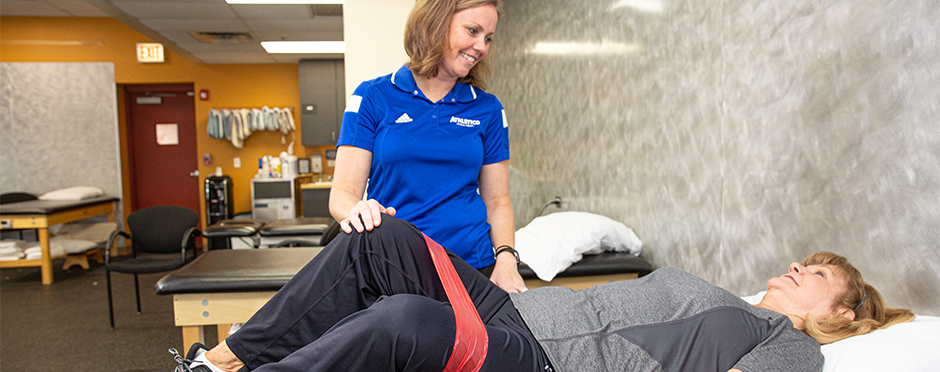
3 Reasons to Try Pelvic Health Physical Therapy
1 CommentPelvic health physical therapy evaluates and treats health issues ranging from incontinence, pelvic and vaginal pain, prenatal and postpartum musculoskeletal pain, osteoporosis, lymphedema, to rehabilitation following breast, genital, and gender affirmation surgery. It involves the treatment of disease, injury, or dysfunction by physical methods such as stretching, strengthening, muscle re-training, manual therapy, the use of modalities and pain science for pain management, and behavioral modifications rather than by drugs or surgery. This style of conservative care can help improve the quality of life for you and the ones around you. Below you will find three reasons to seek pelvic health therapy and get the care you need.
Build a Strong Foundation
Every house needs a strong foundation. As you sit in your seat, you can feel where your body meets the chair’s surface; this is where your pelvic floor resides. Think of the pelvic floor as the foundation on which all your intestines and organs rest. Now, think about how the bladder, vagina, or colon create three holes in your foundation. These holes, or sphincters, function properly 24/7, allowing for timely and effective “relaxation,” admits the constant load of our internals. Physical therapy can help you establish this structure’s proper strength, tension, and activation in conjunction with surrounding muscles to reduce the potential for pain and injury.
Put Accidents in the Past
Ever wonder why you cross your legs when you need to urinate, or race to the bathroom at the first sight of a bathroom? If you find yourself needing to use this technique, you likely have a weak or uncoordinated pelvic floor and bladder. Research shows that pelvic floor muscle training and education on behavioral modifications is highly likely to improve these symptoms, and you may benefit from an individualized therapy program to prevent untimely accidents.
Address Other Barriers That May Be Holding You Back
Did you know that hip replacement surgery is associated with worse urinary outcomes when performed with a posterior approach? The old “Skeleton Dance” song was right; each bone and body system is connected-to-the next bone or body system. With the help of a physical therapist, you can determine whether your recent hip, back, or knee injury may be affecting your pelvic floor.
We Can Help!
Remember, just because the subject may feel “taboo”, doesn’t mean you shouldn’t seek the help you need. Reach out to an Athletico near you to connect with a pelvic health therapist today.
Find a Pelvic Health Therapist
The Athletico blog is an educational resource written by Athletico employees. Athletico bloggers are licensed professionals who abide by the code of ethics outlined by their respective professional associations. The content published in blog posts represents the opinion of the individual author based on their expertise and experience. The content provided in this blog is for informational purposes only, does not constitute medical advice and should not be relied on for making personal health decisions.

1 Comment
Gina S
You got my attention when you said that it is likely that you have a weak or uncoordinated pelvic floor and bladder when you race to the bathroom when you need to urinate. With this in mind, I will convince my best friend to consider the benefits of pelvic floor physical therapy for her condition. There was a time that she almost peed in her pants while we were in the park last month, so your tips must make sense to her.